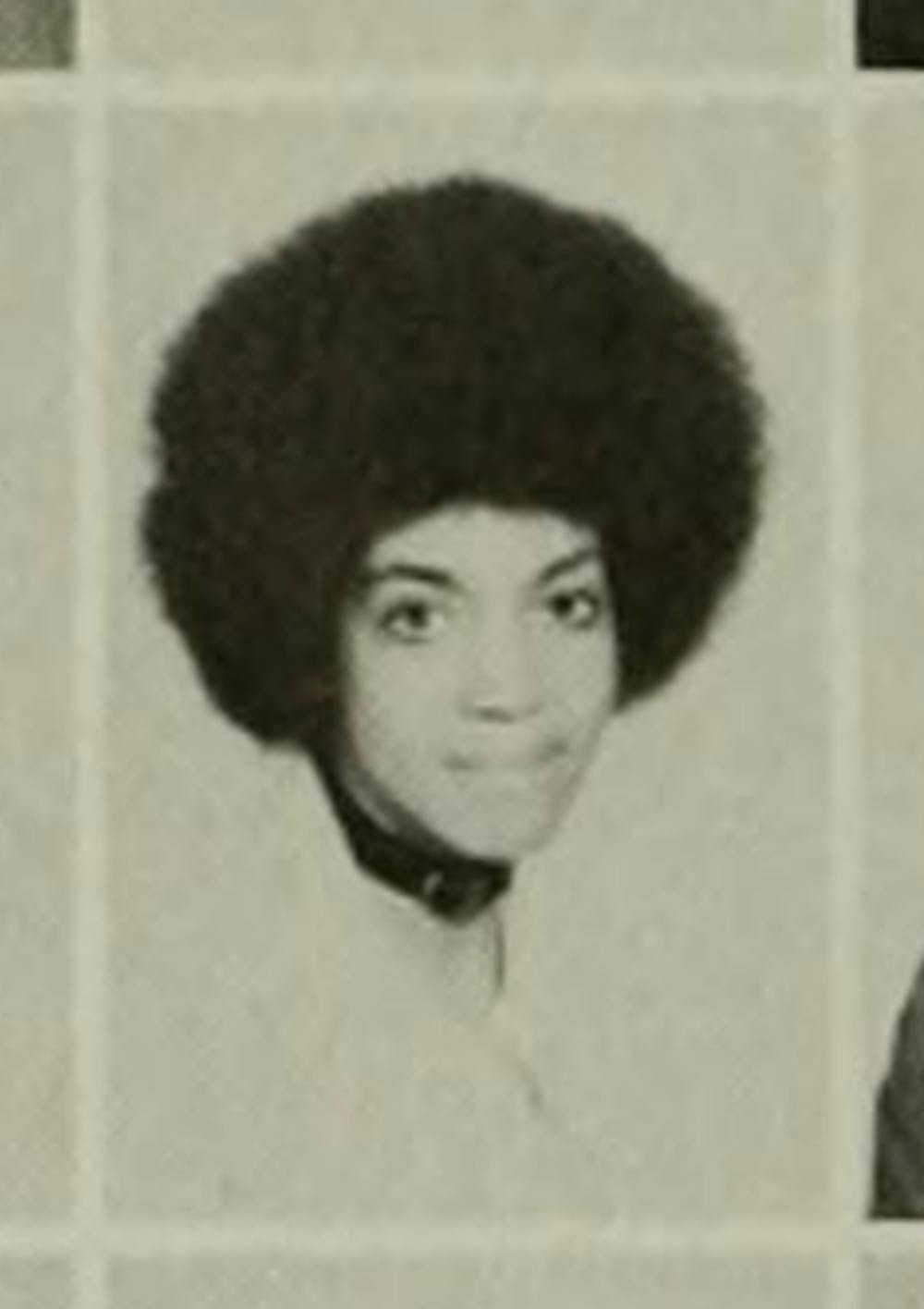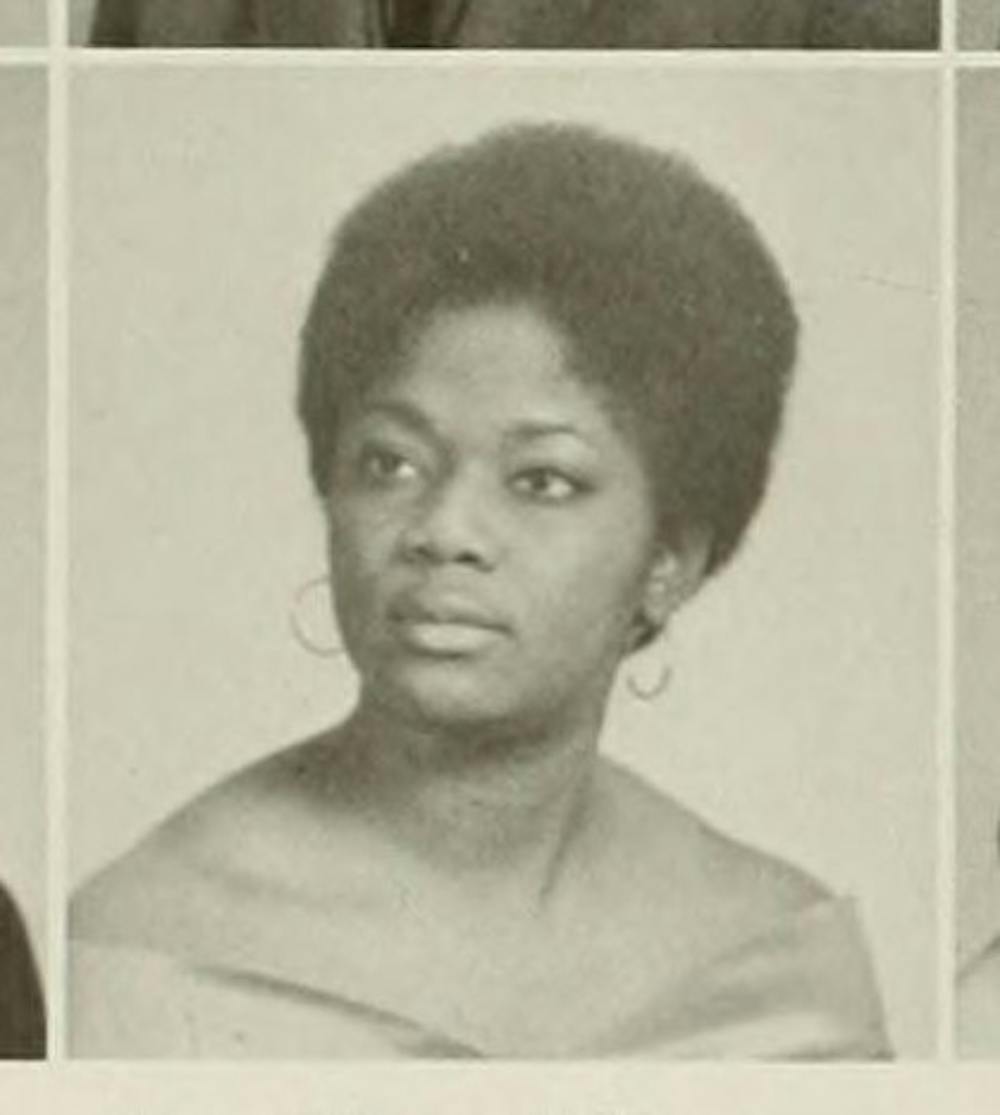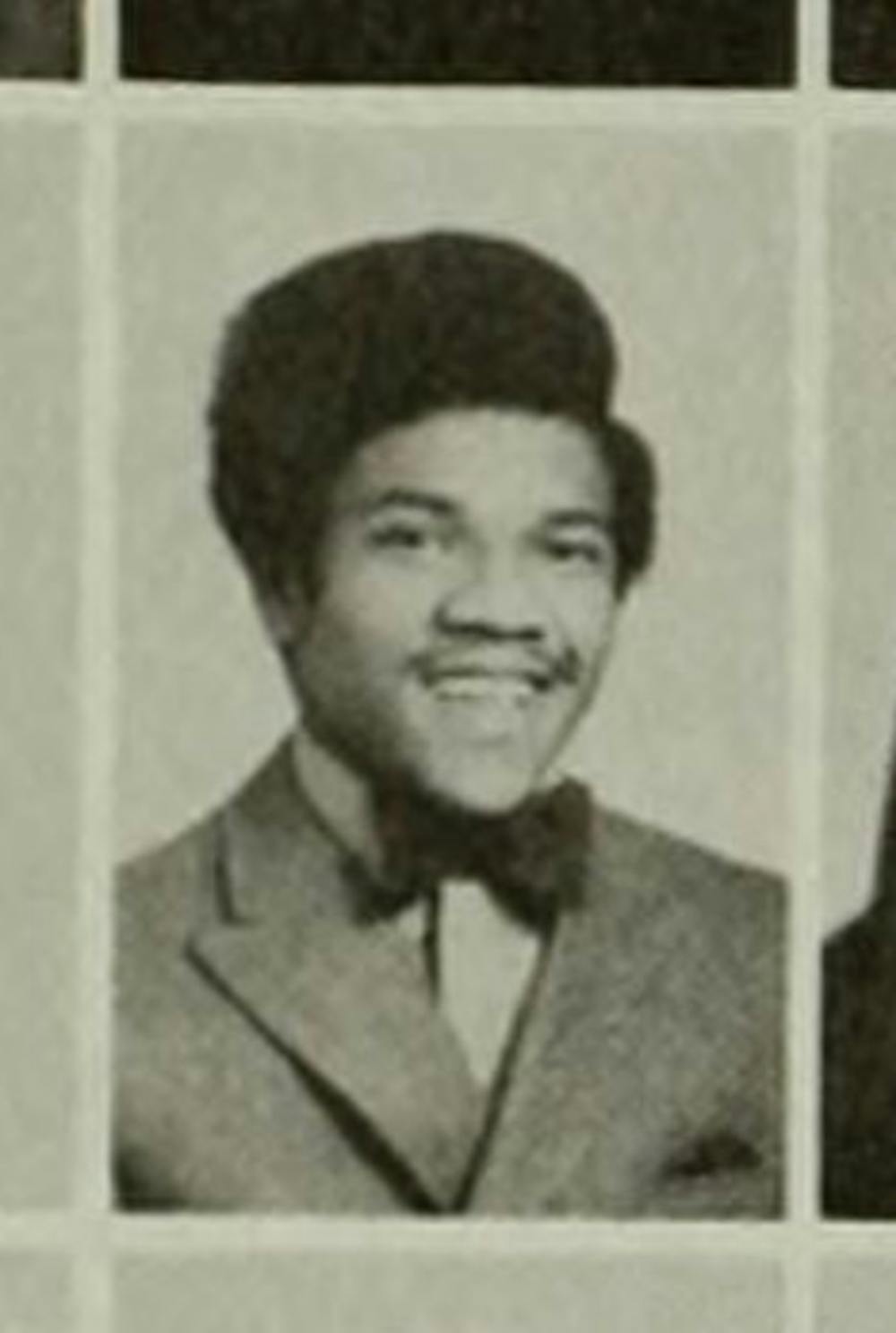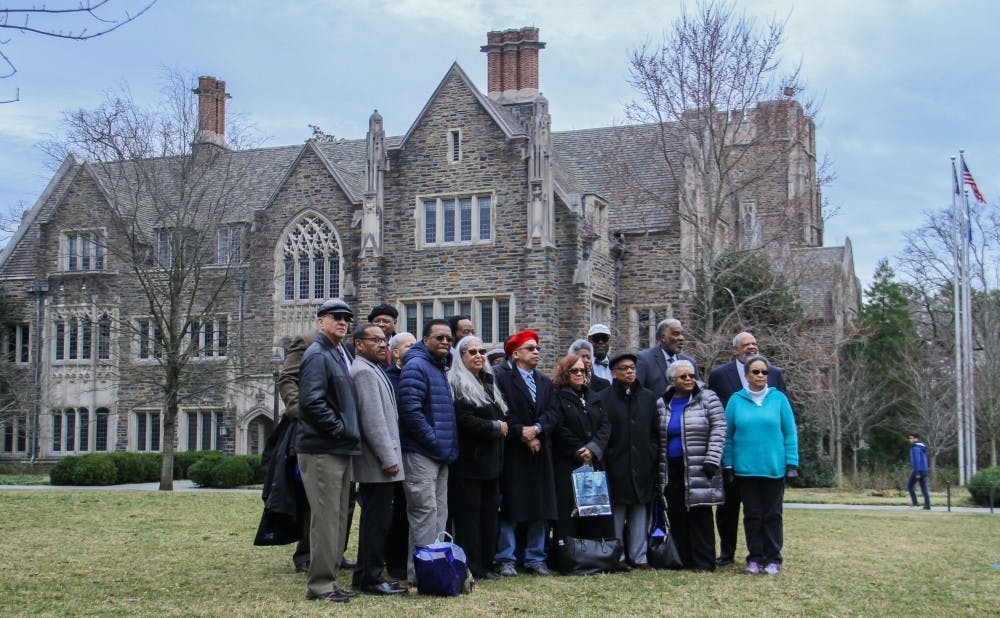Many of the students in the Allen Building Takeover went on to become leaders in law, business, education and social justice after graduating from Duke. We caught up with five of these protesters to find out what they remember most about the Takeover and how it has made an imprint on the rest of their lives.
Chuck Hopkins
Hopkins, a second-semester senior in 1969, was one of the Takeover’s main organizers and served as the participants’ spokesperson during their negotiations with administrators that day.
“The first thing I did was call Dean [Bill] Griffith and inform him that the Afro-American Society had taken over the building and that we had secured it, and that he needed to know our demands,” Hopkins said. “He sort of quietly said, ‘Okay Chuck, I’ll have to get back to you.’ And he hung up. That was a very clear memory. That sort of started the day.”
Hopkins was an experienced student activist prior to the Allen Building Takeover, participating in protests against the Vietnam War and the segregation of Durham’s Hope Valley Country Club, where Duke held some banquets. Douglas Knight, Duke’s president at the time, was a member.
“For the majority of black students, Duke was probably our baptism into activism,” Hopkins said. “I was raised in a home and taught by black teachers in segregated schools about what was right and what was wrong. That’s what I brought to Duke.”
After graduating, Hopkins continued what he called “full-fledged” activism for about a year and won his case to file for conscientious objector status to the Vietnam War when he was drafted.
He then received master’s and doctorate degrees in political science at the University of North Carolina-Chapel Hill, writing his dissertation on the deradicalization of the Black Panther Party. He spent time as a university professor and administrator and said he’s now “mainly retired” while teaching a small course on civil rights at a boarding school in Virginia.
Charles Becton
A third-year law student at the time, Becton was the only graduate student among the protesters who entered the Allen Building. He hosted some Afro-American Society meetings at his off-campus house on Markham Street, and the protesters all met at his house the night before the Takeover and the morning of Feb. 13, 1969 to ride together to West Campus in a rented U-Haul truck.
“I thought our going in would heighten their awareness and their need to talk to us seriously about some of our concerns. I don’t think I thought the national guard would be called,” Becton said. “I remain convinced that had we not dramatized our indignities, not just for Duke University but for the Durham community and the state and the national press we received, our demands would not have been met as timely as they were.”
Since 1969, Becton has become a prominent attorney in the Triangle area and taught at Duke Law School for decades until 2012, when he was named the interim chancellor of North Carolina Central University. He was also the first African-American man to serve as president of the North Carolina Bar Association.
Aside from Becton’s first year out of law school, when he worked for the NAACP’s Legal Defense Fund in New York, he has spent his entire career in North Carolina, where he served as a judge for the North Carolina Court of Appeals.
“From a very early age, I decided I wanted to be a lawyer to help people. The pursuit of justice was always one of my goals. Fighting injustices and discriminatory practices was always at the forefront,” Becton said. “The experiences at Duke and those of other black students made us more acutely aware of the need to be advocates. Those of us who had the ability to effect change in some way had an obligation almost to do so.”
Catherine LeBlanc
LeBlanc was a sophomore in the spring of 1969 and was one of the few women to stay in the Allen Building for the duration of the Takeover, despite male students’ insistence that they leave before law enforcement came in. She said students left through a back window as the day progressed, and by the evening, the number of protesters in the building had dwindled to the mid-20s.
“Those of us who chose to stay began to prepare for the police coming in by squeezing lemon juice on our eyes and putting cigarette butts in our noses in order to blunt the impact of tear gas,” LeBlanc said. “We were highly naive because we had no way to protect ourselves or to fight back. Our leaders had insisted that we bring nothing into the building that even remotely looked like a weapon, so as I reflect back on it today, I see how our youthful naiveté, but nevertheless our fearless commitment to what we believed was right, could have gotten us severely injured or killed.”

LeBlanc, who called the Takeover the “seminal moment” of her college experience, spearheaded the planning committee for last week’s reunion and commemoration of the event.
After graduation, LeBlanc began to pursue her goal of becoming a social worker and took a job with the Pennsylvania Human Relations Commission, investigating cases of discrimination in housing and employment. But she soon grew impatient with the slow pace of change in her chosen field and enrolled in the Harvard Business School, graduating in 1980 to start a career in the corporate world while continuing to volunteer with nonprofit organizations.
“I had a very satisfying career and found outlets for expressing social consciousness in other ways. Sometimes, my contribution was made through just being a pioneer in areas where women and blacks had not worked before,” LeBlanc said. “I remember being one of the early females to go through a company’s manufacturing training program and having assignments in production and as a board person on the factory floor.”
However, she later shifted gears once again to recommit to the public sector and nonprofits full-time. LeBlanc worked for the superintendent of Atlanta’s public schools and served in President Bill Clinton’s administration as the executive director of the White House Initiative on Historically Black Colleges and Universities.
“When I did decide to leave the corporate sector, I remember one of my MBA colleagues who was pretty shocked at the decision [telling] me that I was, and this is his direct quote, ‘an anachronism from the 1960s’,” LeBlanc said. “He was just trying to say that finding people who were still committed to wanting to do good and make a contribution was sort of out of step with the way the world was. I considered it quite a compliment, and to me, it suggested I had come full circle.”
Bertie Howard
Howard had a more personal understanding than most of her peers of how dangerous student activism could be.
Almost exactly a year before the Allen Building Takeover, on Feb. 8, 1968, her hometown of Orangeburg, S.C. became a headline when police opened fire on students on South Carolina State University’s campus protesting the segregation of a local bowling alley, killing three and injuring dozens more.

“I was out with some students from my dorm. I lived in Pegram,” Howard said. “We were driving there and the radio was on, and I remember that they broke into whatever music we were listening to say that there were students who had gotten shot.”
The massacre made national news while Howard was a junior at Duke, and she had regularly participated in protests while she was growing up in the town. Around fourth and fifth grade, Howard spent two to three full years without ever going to downtown Orangeburg because its stores didn’t hire black workers.
“I grew up in a time of struggle,” Howard said. “In spite of all the achievements of black people in my town, in my county, it was still a very segregated place.”
After she graduated in 1969, Howard worked in independent black education and early childhood education and was also involved in the anti-apartheid movement that put pressure on South Africa. She now works for a community action agency in her native region in the midlands of South Carolina helping people support their families, get an education and find employment.
Howard is proud of the progress Duke has made in the last 50 years, pointing to the establishment of the Mary Lou Williams Center for Black Culture and the John Hope Franklin Center as positive steps, but still wants to see the University do more, particularly for non-academic workers.
“I’m a hard person to satisfy,” Howard said. “Duke is an immensely powerful institution. It wants to be, and I think it is a leading educational institution, and I think they have not done all they can.”
Sundar Fleming
Fleming’s experience with the civil rights movement long predated his time at Duke. His father was a preacher and a professor at Shaw University when the Student Nonviolent Coordinating Committee was formed there in 1960. In his father’s office that year, Fleming was introduced to Martin Luther King, Jr. at age 11. Three years later, he took a bus from Raleigh to participate in the 1963 March on Washington.

When he arrived at Duke as a freshman in the fall of 1967, Fleming found that the African-American students there were generally all used to fighting for inclusion.
“I think the black kids then were middle class, lower-middle class, those kinds of families versus what you’ve got now is you have upper-middle class and in some cases very, very affluent and famous kinds of people that come to Duke,” Fleming said. “Duke did a fairly decent job in terms of getting us ready academically in terms of things that they did for us, but I think socially, we were very, very limited.”
Fleming participated in the Takeover as a sophomore and remembered seeing storm troopers out the back window carrying billy clubs. He believes the protest was a long-term success, with Duke ceding to students’ demands out of concern for its long-term image.
“I think they learned that we were actually more powerful than they had given us credit for, and I don’t think they necessarily wanted to have that kind of an event to happen again,” Fleming said. “Duke and Vanderbilt were both trying to be Ivy League schools of the South.... Duke was trying to elevate its reputation in the country, so they didn’t really want to have a southern bent on race relations and the civil rights movement. They were kind of caught between a rock and a hard place.”
Fleming earned his undergraduate degree in 1971 and received a doctorate in marketing at the Fuqua School of Business in 1977. He spent most of his career as a professor of marketing at North Carolina Central University and served as the dean of the business schools at South Carolina State for four years and N.C. Central for 13 years.
Correction: An earlier version of this story stated Fleming was the interim dean of N.C. Central's business school. The Chronicle regrets the error.
Get The Chronicle straight to your inbox
Signup for our weekly newsletter. Cancel at any time.

